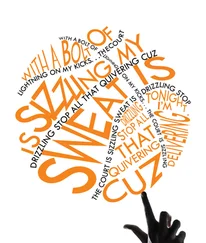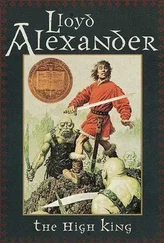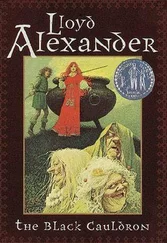“She needs a rest from taking care of you.” I put my gloved hand on his arm.
“How are you, Daughter? I’m glad you’re here.” His hair had turned almost gray since I’d last seen him several months earlier. The lines on his face had deepened into dark folds.
“I’m fine. We can talk later. I’m here for at least three days. You should be discharged by then.”
He sighed. “I hope you’re right because I can’t afford to be sick. Reichsmark are hard to come by these days. I know many men who would like to take my place at the factory.” He pulled on the mask and hacked violently into it. Pain contorted his face until the coughing spasms subsided. A nurse appeared at the door. She administered a shot and soon my father fell into a deep sleep.
I left the ward and wandered until I found the dining hall. I had only eaten a small breakfast on the train. When I returned to the room an hour or so later, my father was awake, eating his supper. He picked at the boiled potatoes and a small cut of meat covered in a thin brown gravy. The meals here, served to those who were sick, were so different from those served to the Führer and his staff. I felt ashamed of my good fortune.
My father looked at me and smiled. I returned the smile under my mask and wondered what to say. I couldn’t talk about work because of the sensitivity of my job, and I debated whether to tell him I was engaged. I was afraid he would disapprove of my relationship with Karl. My mother soon showed up and put an end to any chance of a prolonged conversation. I promised to visit the next day. My mother and I stayed until ten.
* * *
“I’m engaged,” I told my mother when we arrived home, confident she would be pleased. “I’m a member of the Party now and engaged to an SS Captain. His name is Karl Weber. You would like him.”
My mother showed little emotion. She sat across from me at the kitchen table, her hands in her lap, her eyes downcast upon the cotton tablecloth. The woody odor of tea wafted up from our two cups. We shared a tea bag. “I only have five bags left. Do you know what a tea bag costs these days? I’m saving some of these for your father when he comes home.” She covered her eyes with her hands and burst into tears.
“Mother?” I was unaccustomed to seeing her in such an emotional state. I got up from the table and stood behind her, holding on to her shoulders. “Everything is in short supply.” My words were a half-truth. Supplies were short in Germany, not at Hitler’s headquarters. “I can send you some money if you and Father need it.”
She sobbed, shaking in her seat, then uncovered her eyes and stared at the wall. “It’s not the money. There’s no happiness in Berlin. There were bombings a few nights ago. What are we to do? I’m beginning to believe, like your father, that the Führer is a madman driving us to destruction.” She wiped her eyes with the backs of her hands. “I’m happy for you, Magda. At least you are safe with the Führer. You will be protected.”
I didn’t want to cause her further distress, so I didn’t express my feelings. Soon I feared we would be no safer at the Berghof and the Wolf’s Lair than in Berlin.
“I hate to say it, but I’ve envied you. It’s not good for a mother to envy her daughter. Wherever you are, you’re protected. You eat delicious food, you never worry about going hungry. You don’t worry about bombs falling from the sky, or the Gestapo taking you away in the middle of the night.”
I returned to my seat and took a sip of the weak tea in my cup. Everything my mother said was true, but it was also a lie. I worried about being poisoned, about bombs raining their destruction. The Gestapo could easily take Karl or me away during the night. “Maybe you and Papa should live with Uncle Willy and Aunt Reina. It may be safer in Berchtesgaden.”
My mother shook her head. “Your father would never agree to it. He would never toe the Party line like his brother and we couldn’t appear like peasants on their doorstep. Reina is the queen of that household. The atmosphere would be stifling.”
I nodded, for I knew the truth in her argument. “Should I tell Father about my engagement?”
“Let him recover first. I’m not sure how he’ll take the news.”
My mother was wise. I longed to tell my parents about my relationship with Karl and what he intended to do for Germany, but that was impossible. We finished our tea and talked about the neighborhood. Sometime after midnight, I lifted the blackout curtain covering the kitchen window. The world seemed strangely quiet and I thought I heard the buzz of bombers overhead.
* * *
My mother and I were sitting in the kitchen the next evening when the air-raid sirens began their unearthly wail. We had taken shifts at the hospital during the day and were slumped in our chairs from exhaustion.
Mother looked at the ceiling as if in prayer and then stared at me with eyes wide with fright. The ceiling shook from an explosion and the kitchen light swayed as if dancing to a discordant rhythm. A fine shower of white plaster dust fell from a crack and settled on the floor.
“I hope it’s nothing,” my mother said.
I was less hopeful. The air sparkled with electricity and the bombers droned overhead. “We should go to the cellar,” I said in a panic. I shot up from the table, ready to grab a few things I might drag downstairs.
Another blast detonated closer than the previous one. The walls and furniture rattled. The intensity increased second by second and soon the house began to shake as if it had been struck by an earthquake. Searing billows of fire split the night while the white traces of flak roared heavenward from German anti-aircraft guns.
“Hurry—there’s no time,” I screamed over the blasts that pounded our ears. The bombs hammered around us.
The more I considered the deafening apocalypse outside our window, the less I thought we should go to the cellar. I grabbed my identification papers and secured them in my belt. I took my mother by the arm and led her down the stairs to the front door. As we stood sheltered behind it, a gigantic orange fireball flashed down the street. The gutter flared with flames from dead leaves; some of the trees burst into flames. We were saved by the stone façade of our building.
I wrenched open the door and started down the steps, making sure my mother followed. When we reached the sidewalk, I looked east and gasped. As far as I could see, Berlin was burning. To the west, several blocks were on fire and a maelstrom of wind and flames swirled into the sky. I was unsure what to do, which way to go for shelter.
My mother stopped me from taking another step. She clutched me and yelled, “Frau Horst. She’ll burn to death!”
In my panic, I had forgotten about the old lady who lived upstairs. “You stay here. I’ll go for her.”
A bomb whistled in the air and exploded less than a block away. The houses shivered on their foundations and then came to rest with creaking moans. Mounds of dirt and debris fell around us. I sprinted up the stairs to the top floor of our building. I pounded on the door, but there was no answer. Another bomb fell close and shafts of orange light shot up the stairs. I slammed my fists against the wood and then, in a moment of unearthly quiet, I heard a feeble voice say, “Go away.”
I tried the knob, but it was locked. I screamed at Frau Horst again.
There was no reply.
The air fractured like glass around me and the concussion knocked me to the landing. The ceiling curled in red and yellow flames like paper held to a candle. Burning embers fell upon my skin and dress. I brushed their stinging bites off my arms and head and fled down the steps. I had no choice. Outside, waves of fire trembled in the sky. I called for my mother, but she was nowhere to be seen. One of her shoes lay next to the curb. I yelled until my voice cracked, but I couldn’t find her. I fled west; it was cooler and the air was less smoky. I looked back to see my home consumed in the fiery tempest. I ran until I was far away; then, sat on the stoop of an unfamiliar house and cried. The bombing seemed to go on forever. I waited on the stairs until it stopped. The fire, smoke and ash from the neighboring blocks rose high into the air. The flames crackled as hellish heat swept over the city. The sound of the inferno was punctuated by screams and the thunderous crush of falling buildings.
Читать дальше












